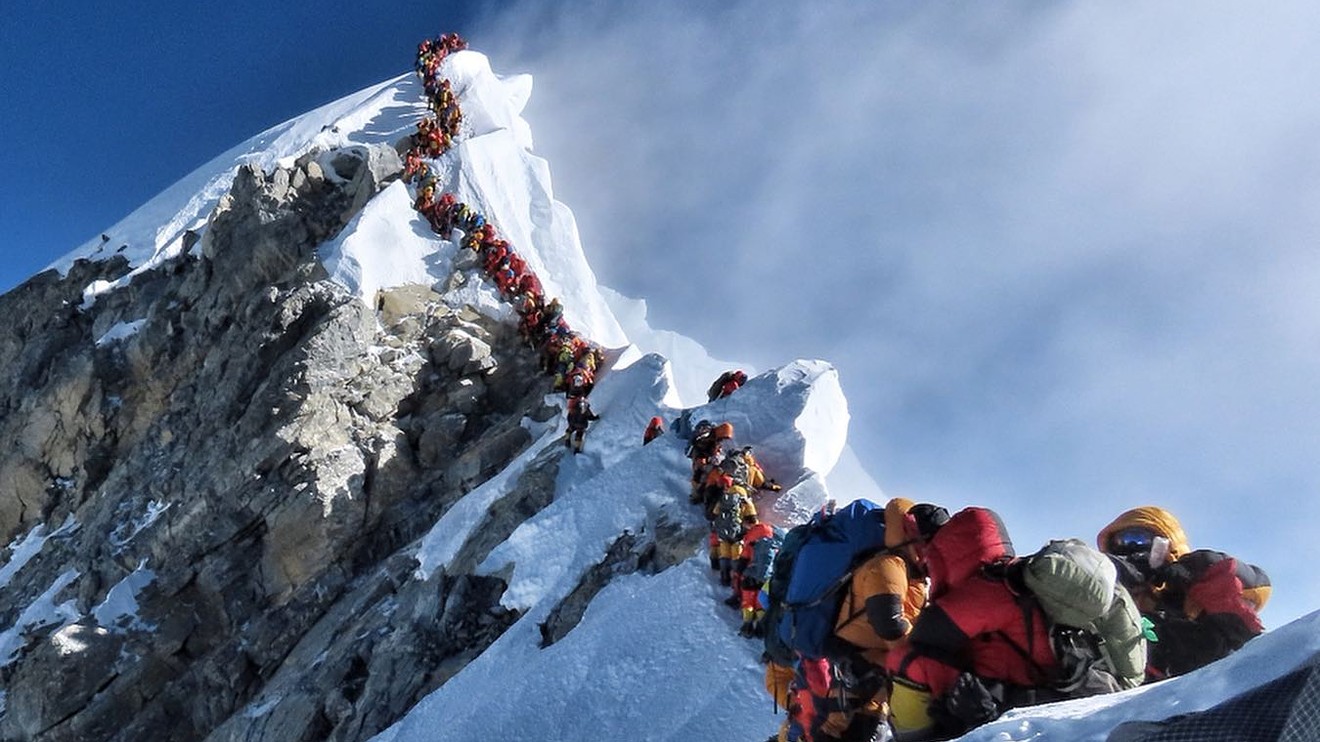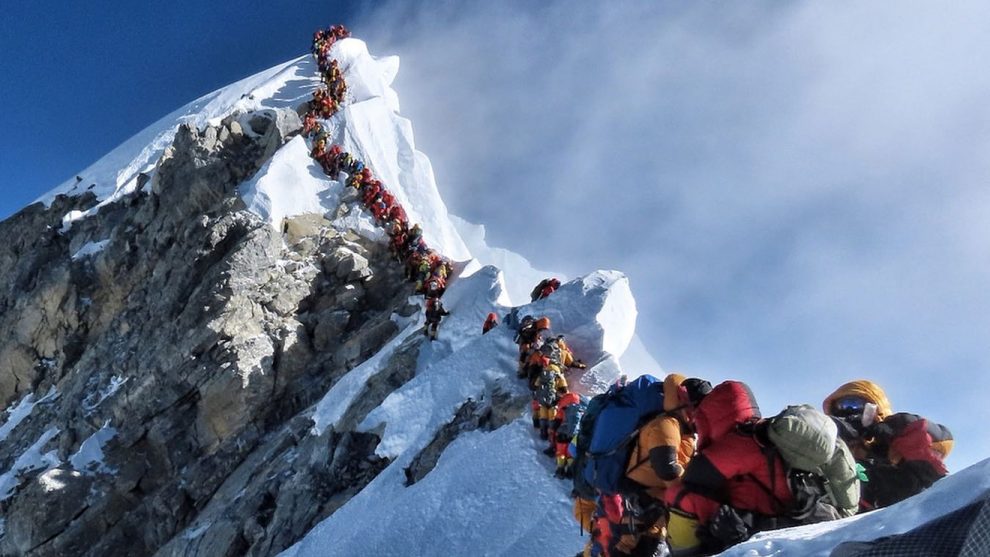
Another climber has died on Mount Everest — the 11th this year — and the number could very well rise.
The mountain’s 29,035-foot peak is more crowded than ever this climbing season and people at the summit are experiencing constant delays and traffic jams because of it.
“Death. Carnage. Chaos,” described Canadian filmmaker and mountaineer Elia Saikaly on Instagram Saturday after scaling Everest for the third time.
“Lineups. Dead bodies on the route and in tents at camp 4. People who I tried to turn back who ended up dying. People being dragged down. Walking over bodies. Everything you read in the sensational headlines all played out on our summit night.”
Christopher John Kulish, an American, succumbed to the extreme conditions on Monday while making his way down through Everest’s “death zone” — where oxygen levels are at their lowest.
A Nepal tourism official told Reuters that he died suddenly at South Col after scaling the normal Southeast Ridge route. The cause of death was unclear.
A record 381 permits were issued this year to climb Everest, and photos posted on social media show it.
“High on the Hillary Step on May 23rd, video camera in hand, just beneath the top of the world. We passed over 60 people during the night and arrived to the south summit just after sunrise,” Saikaly recounted in another IG post on Monday, which showed climbers waiting in a long line.
Right next to them, a “lifeless soul” can be seen laying in the snow.
“Is this what Everest has become?” Saikaly asked. “This poor human being perched 7000ft above the Western CWM for everyone to observe was a reminder of each of our own mortality. Was this the ‘Dream of Everest’ we all imagined?”#
At least 11 people have been reported dead or missing this climbing season. Among them are four Indians, an Austrian and one person from Nepal. Most of the deaths have been attributed to exhaustion and tiredness.
“Before you reach the summit, you have to wait and every minute counts at the height,” said Krishma Poudel of Peak Promotion, a Nepalese mountaineering agency.
“Waiting for hours at that kind of height really takes a toll,” she told NBC News.
Some climbers have reported being “stuck in traffic for more than 12 hours.”
“As the cues pushed onwards and upwards, so did we, as did over 200 people that day,” Saikaly said.
Local tourism officials have refused to blame the overcrowding as reasons for the high death toll and are instead attributing it to bad weather conditions, among other factors.
“Who is responsible here?” said Saikaly. “The individuals? The companies? The Government? Is it time to enforce new rules? Will things ever change? What’s the solution here?”
This story originally appeared on NYPost.com












